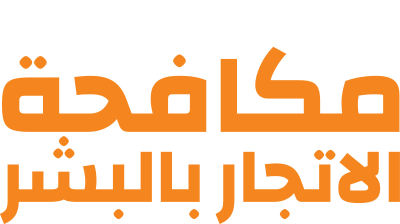The Law
Law of Combatting Human Trafficking
Human Trafficking or Trafficking in Persons (TIP) is specifically outlawed in Oman.
Royal Decree No. 78/2025 promulgates the Law on Combating Human Trafficking. It replaces the Law on Combating Human Trafficking issued under Royal Decree No. 126/2008.
The Anti Trafficking Law lays down a minimum punishment of imprisonment of 3 years and a minimum fine of OMR 5,000 for anyone convicted of human trafficking. The maximum punishment is 10 years in prison and a fine of OMR 100,000.
In aggravated cases, the minimum sentence is seven years’ imprisonment, and the maximum is 15 years. The minimum fine is OMR 10,000, and the maximum is OMR 100,000. Aggravated cases include those where the victim is under 18, where the crime is committed by more than one person or an organised criminal gang and/or where the crime is transnational.
The Law is written to stop all acts of exploitation. Exploitation is defined as the illegal use of a person (including prostitution), any form of sexual exploitation, serfdom, forced labour, enslavement (or practices similar to slavery or enslavement) and the illegal removal of organs.
The Law states that a person will be deemed to commit a human trafficking crime if, intentionally and for the purpose of exploitation, they:
- Use, transfer, harbour, receive, abduct, detain, deport or shelter a person inside or outside Oman by coercion, threat, abuse of authority or influence, abduction, deception, exploitation of vulnerability, or by any unlawful means, whether direct or indirect.
- Use, transfer, harbour, receive or deport a child, an incapacitated person, or a disabled person, even without the means listed above.
- Sell, offer for sale, purchase, promise to purchase or exchange a person.
- Use a person for slavery, servitude or forced labour.
The Law also sets out special procedures for the care of victims when investigations are being carried out.
The law establishes the National Committee to Combat Human Trafficking (NCCHT) and sets out its responsibilities.
The new Law of 29 Articles updates and strengthens the previous 2008 Law. Changes made include:
- Adding new articles to criminalise passport confiscation or destruction as a trafficking tool, and to introduce a 20-year statute of limitations.
- Expanding definitions of human trafficking.
- Extending exemption from treatment costs to include residency and labour penalties.
- Expanding the mandate of the NCCHT to include victim care, training, research, border control, and reporting functions.
- Widening the scope of trafficking crimes to include new acts such as the sale, purchase, exchange of persons, and the exploitation of children, or incapacitated persons, even without coercion.
- Clarifying the non-liability principle to ensure that victims cannot be punished for acts committed as a consequence of trafficking.
- Increasing the minimum imprisonment from 3 to 10 years.
- Adding several aggravating circumstances.
- Broadening criminal liability by adding concealment, possession of proceeds, and benefiting from victim labour.
- Strengthening the role of Public Prosecution by explicitly adding management/seizure of assets and proceeds.
Palermo Protocol
The Sultanate of Oman has also demonstrated its commitment to tackling human trafficking by its ratification in 2005 of the Palermo Protocol.
This is a United Nations protocol to prevent, suppress and punish trafficking in human beings, especially women and children. It supplements the UN Convention against Transnational Organised Crime.

